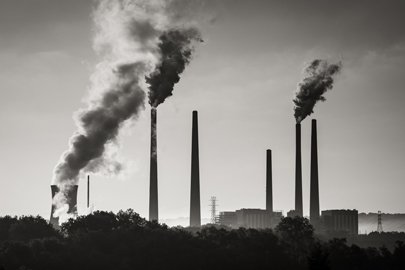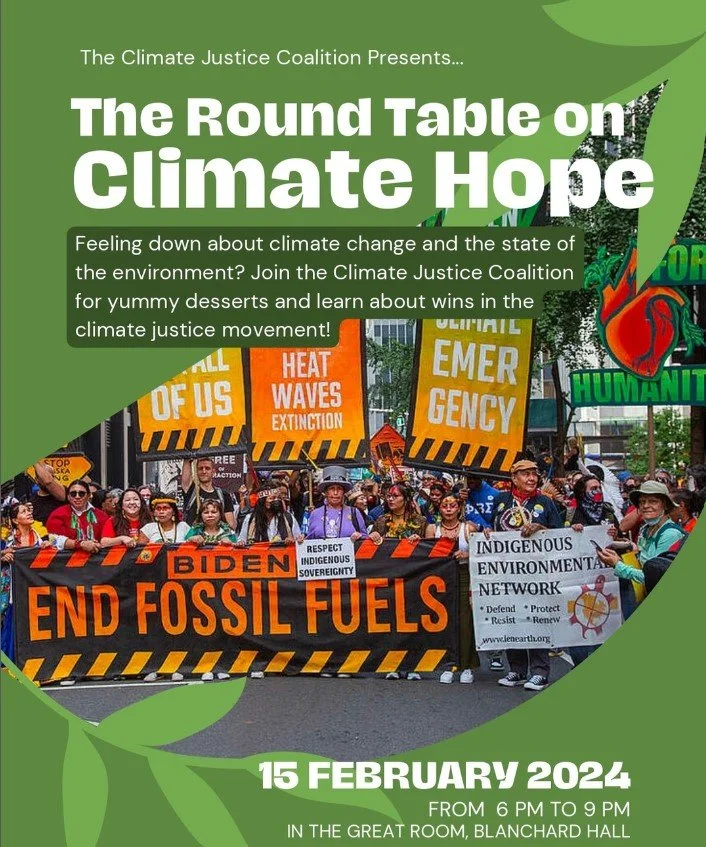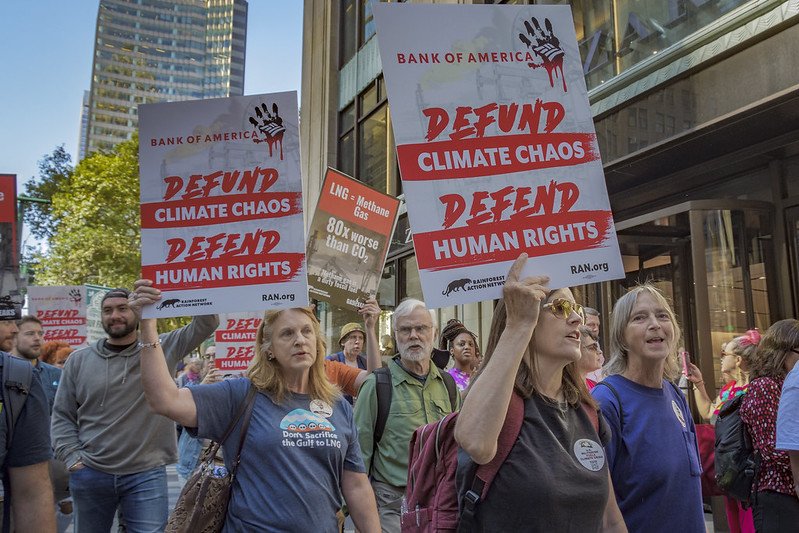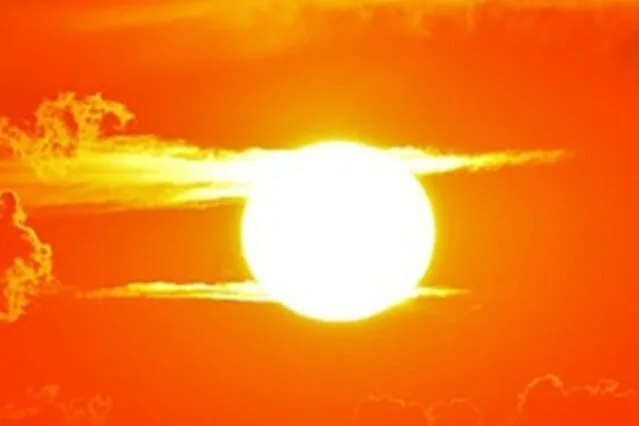Panel on the Intersection of Climate Change and Conflict explores intersections of environmental and social harm
Mount Holyoke Climate Justice Coalition celebrates ‘radical hope’ in climate activism
With the clock ticking down on the threshold to prevent irreversible climate damage, it is easy for the climate crisis to feel like an insurmountable obstacle entirely out of the hands of average citizens, The Guardian reported. For many, hope in the face of the climate crisis can be impossible to pick out of the nihilistic tangle of political inaction and daunting news headlines.
Fossil fuel debate dominates discussions at the United Nations’ recent contentious COP28 conference
As anxious citizens and activists across the globe watched the contentious 28th Conference of the Parties to the UN Framework Convention on Climate Change unfold through their phone screens, one pervading question plagued their minds: Would a fossil fuel phase-out make it into the conference’s final agreement? After a week of divisive debates and negotiations — in which a final settlement seemed almost impossible — the COP28 representatives have now concluded their talks, announcing on Wednesday, Dec. 23, a historical agreement to transition away from all fossil fuel consumption, NBC reported.
Severe drought in Amazon Rainforest causes river levels to fall
New York City protestors call for an end to fossil fuels
Texas becomes one of the hottest places on Earth during brutal heatwave
Everything is bigger in Texas, and for three straight weeks, this has also included the record high temperatures set by an extreme heat wave blazing through the state, NBC reported. While CNN divulged that the rest of the world recently set a global record for the hottest day in history —July 4 temperatures capped at an unprecedented 17.8 Celsius (64.04 Fahrenheit) global average — Texas had become one of the hottest places on Earth by late June, NBC described. According to NBC, state temperatures “hit or surpassed 110 degrees Fahrenheit,” and triple-digit heat gripped numerous major cities in the state, such as San Angelo and Del Rio. This kind of weather is standard for parts of the world like northern Africa and the Middle East, but for Texas, its presence was rattling, NBC reported.
Cloudy with a chance of smoke: what air quality scares have taught us about climate justice
On Wednesday, June 7, New York City recorded the worst air quality in the world, CNBC reported. According to the Guardian, at a reported 195 micrograms per cubic meter made up of small particulate matter, the sky had turned from a “milky white” to a harsh orange color. The number of particles far exceeded normal levels based on the city’s national air quality standard, which is typically around 12 to 35 micrograms of small particulate matter, as stated by New York City’s Environmental and Health Data Portal.








